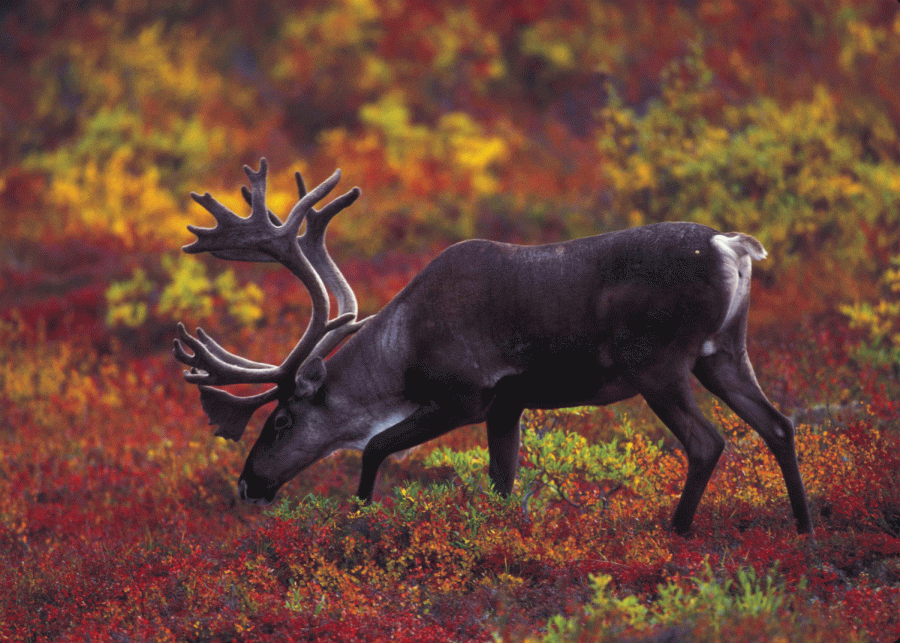Sustainability Column: The Fate of the Alaskan Arctic
The Gwich’in tribes depend upon the Porcupine Caribou for survival, a species whose breeding will be impacted by drilling.
On Saturday, December 2, the United States Senate passed a bill as part of the tax overhaul that will allow drilling in parts of the Alaskan Arctic National Wildlife Refuge (ANWR). This vote passed 51-49, based on the ideology that opening drilling will benefit both Alaska and the United States economically. However, drilling in ANWR will have lasting negative impacts on the native animal populations, the natural environment as well as the indigenous tribes, all of which are being overlooked solely for short-term economic gain.
The Arctic National Wildlife Refuge has been public land, meaning it is partially owned by all Americans, since the 1960s, with a purpose to “conserve animals and plants in their natural diversity, ensure a place for hunting and gathering activities, protect water quality and quantity and fulfill international wildlife treaty obligations” (Fish and Wildlife Service). This land is meant to be cherished and left wild. This land is meant to be used by animals and indigenous peoples. Everyone should experience and enjoy the majestic beauty of this part of the world. This land is not meant to be torn apart and ravished by the oil industry, which would be completely out of line with the mission of our public lands in the first place.
At a time when countries across the world are shifting their energy sources from fossil fuels to renewables, it is hypocritical and insulting for one of the largest superpowers in the world to be searching for new ways to extract oil. Besides that, we will be harming our own people and animals. The Atlantic discusses how there are positives in the expansion of the oil industry for indigenous peoples. It could support them economically. However, since these tribes are based on subsistence, if there are any oil catastrophes their livelihoods would be ruined. Some tribes like the Inupiat people are pro-drilling and want to work for oil companies because it will improve their economy. However, some groups, including the Gwich’in tribe, are culturally dependent on the Porcupine Caribou which calve near the oil drilling. If drilling is to happen, this species would be at great risk and a massive part of Gwich’in culture would be at risk as well.
Opening drilling to the Wildlife Refuge will create a
complex system of positives and negatives for the local people, but it will indisputably hurt the local ecosystem. In addition to the Porcupine Caribou, drilling threatens the Alaskan moose, black bears, Canadian lynxes and many other species.
Drilling in the ANWR has been subject to debate because of the inevitable harm to natural wildlife it would inflict on such a delicate location. We should not be threatening these ecosystems with the continued support of a dying industry. We’ve already caused irreparable damage with the amount of oil previously extracted. Drilling poses risks for oil spills and gas leaks, like the Keystone XL pipeline, which had a massive spill just a few weeks ago, as well as interference with the culture of indigenous peoples. It is small-minded and corrupt to make this decision solely considering short term economic gain, while ignoring the severe environmental and humanitarian problems drilling will bring about.
Contact Delaney Pals at [email protected].








